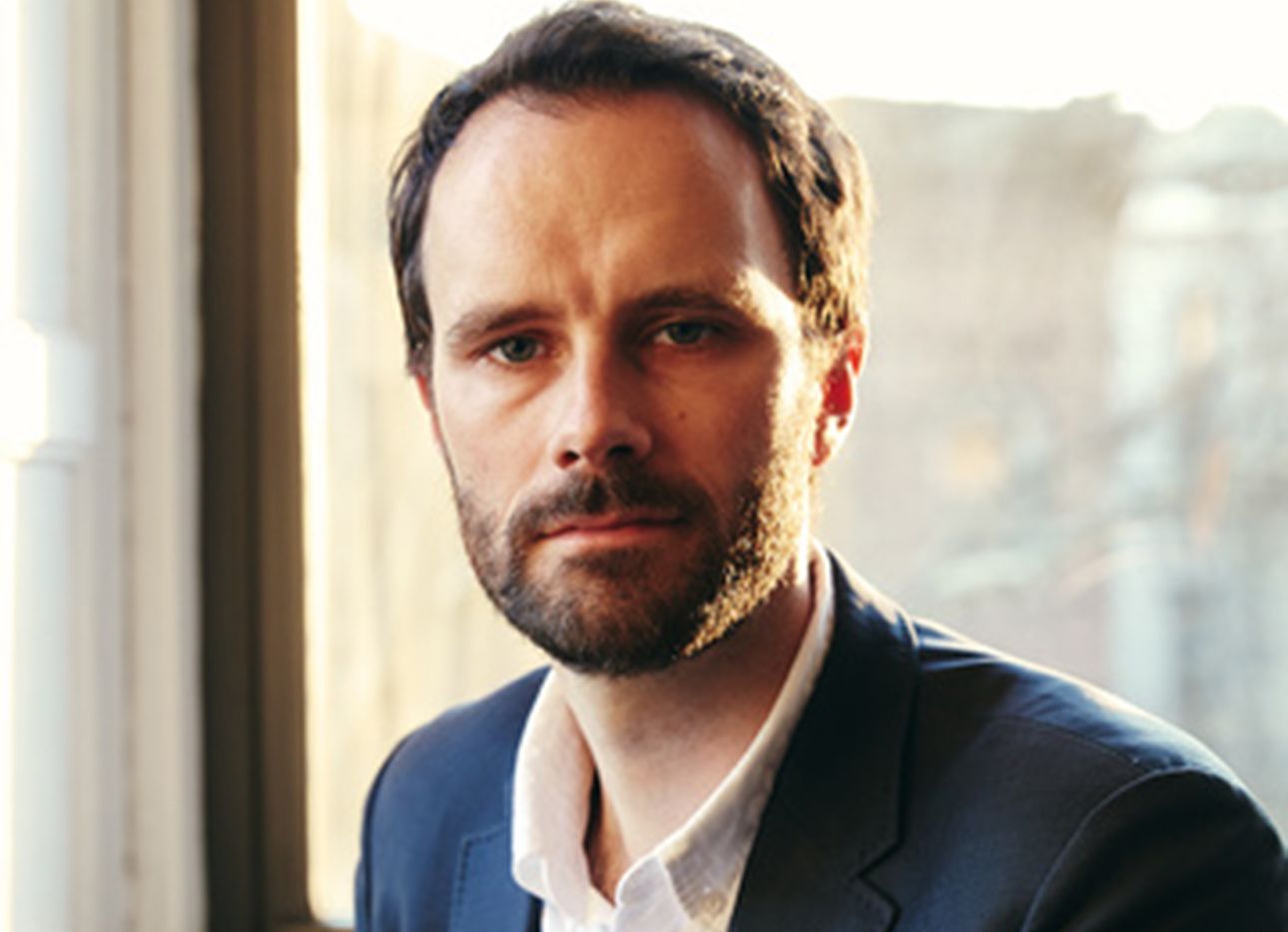
Why History’s Harrowing Polar Expeditions Get Julian Sancton’s Blood Pumping
Julian Sancton knows a thing or two about bone-chilling temperatures. “For a while, I’ve been visiting a friend’s uncle’s lake house in New Hampshire each winter, when it’s typically around zero degrees,” says Sancton, a New York–based author who grew up in France and served as senior features editor at the recently-folded Departures magazine for nearly a decade. Despite the getaway’s frigid conditions, he continues, “It’s just so beautiful, and gave me a taste for the cold.” Perhaps that’s a reason why he was so drawn to the harrowing account of a Belgian polar expedition that took place at the end of the 19th century, in which a ship named the Belgica spent a sunless winter frozen in the Antarctic ice. Sancton traces the historic voyage, which wasn’t exactly smooth sailing, in his first book, Madhouse at the End of the Earth: The Belgica’s Journey Into the Dark Antarctic Night (Penguin Random House), out this week. We recently spoke with Sancton about what he read during his research, and the news sources, podcasts, and TV shows he’s taking in now.
Tell us about some of your favorite books on polar expeditions.
I read a lot of them while working on this book. I’d definitely recommend In the Kingdom of Ice: The Grand and Terrible Voyage of the USS Jeannette, by Hampton Sides. I aspire to write as beautifully as he does about the poles. For people who really want to get into the weeds with this, there’s a book called The Last Place on Earth: Scott and Amundsen’s Race to the South Pole, by Roland Huntford, about a contest that took place in 1911 between an English party, led by Robert Falcon Scott, and a Norwegian party, led by Roald Amundsen. Amundsen was the first mate on the Belgica, and he seems almost impossibly heroic. It was interesting to see the core of humanity and the vulnerability in him.
I would also recommend Endurance: Shackleton’s Incredible Voyage, by Alfred Lansing, which is the story of the mind-bogglingly courageous polar explorer Ernest Shackleton, who set sail for Antarctica in 1914. It came out in 1959, and is absolutely the gold standard for this kind of book. Another title that jumps to mind is The Perfect Storm: A True Story of Men Against the Sea, by Sebastian Junger. Spoiler alert: Everybody died on the boat [caught in the nor’easter that the book’s title references]. So it’s incredible how he was able to piece together what happened to them. It’s such a brilliant piece of writing, but also of reporting and research.
How do you start your mornings?
Until recently, it was with just The New York Times, like everyone else. But certain newsletters have gotten better at grabbing my attention in my inbox with catchy headlines. My favorites are the less-frequent ones. I have to call out my friend, the [Paris-based] New Yorker staff writer Lauren Collins, who chronicles her experience getting to understand all the complexities of French life in the newsletter Lettre Recommandée. It means “priority mail,” but also “recommendation letter.” Even as a Frenchman, it’s wonderful to rediscover my country through her eyes.
I also listen to Radio France, which is basically French NPR, and there are several stations under its umbrella. They have a great app, which has no shortage of podcasts and songs.
What are your daily reads?
Aside from The New York Times, I’ll occasionally read the Hollywood Reporter. After working at Vanity Fair [from 2003 to 2010], I still care about the whole film crit and film commenter world.
What are your favorite podcasts?
I listen to In Our Time daily, because I’m catching up on it and it’s been going on for years. It’s a BBC podcast hosted by an absolute brilliant Renaissance man named Melvyn Bragg. I’ve never encountered a more curious person than him. The program makes me feel like I’m taking a fresh drink of knowledge, and it doesn’t talk down to me. It’s a different subject every time. They are as diverse as [the poem] “Sir Gawain and the Green Knight” one day, the theoretical physicist Paul Dirac the next day, and the Punic Wars the day after that. Each show features three academics or specialists on its topic, who give an overview then get into some of the debates surrounding it.
Any guilty pleasures?
Sometimes I sit down with my daughter and watch her cartoons. I’m a bit of a tyrant when it comes to what she can watch, and she’s just as defiant. We both agree on Tumble Leaf, which is made with stop-motion animation. We do stop-motion animation together occasionally—I studied animation in college, among other things—and we’re inspired by that show.
I also just got through Schitt’s Creek. It’s fantastically acted and brilliant. I love all the people who put it together. It’s definitely smart and its heart is in the right place, but it made me feel a little guilty. Maybe I shouldn’t feel that way.